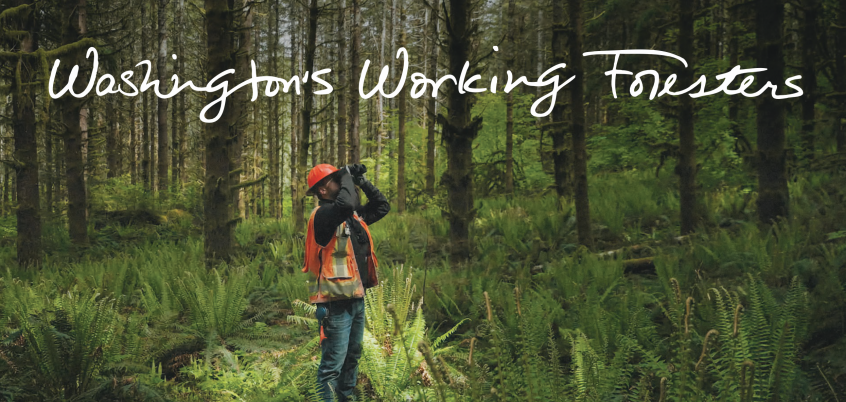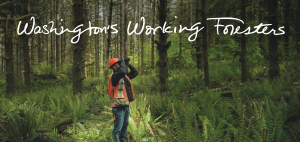
Collaboration and building strong partnerships were the overarching themes at the 114th Washington Forest Protection Association (WFPA) Annual Meeting in Olympia. The meeting, which can be viewed on TVW in parts one and two, featured forestry sector leaders and elected officials recognizing the critical role Washington’s working foresters and private forest landowners play in the state’s economy, salmon recovery and addressing climate change. Outgoing WFPA Board President Bill Monahan described the annual gathering as a meeting and celebration.
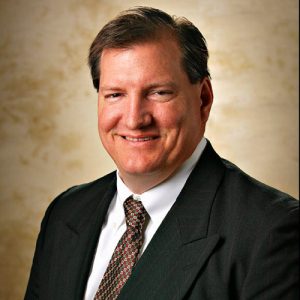
2021 – 2022 Washington Forest Protection Association Board President Bill Monahan.
Said Monahan:
“When you think about what the members of this association do. What you do day in and day out, and we should celebrate that. Working forests provide for clean air, clean cool water, salmon habitat, wildlife habitat. We protect endangered species. We provide for great, solid-paying rural jobs and carbon storage. We provide climate friendly wood products. We store that carbon throughout the life of the wood product.”
The annual meeting included a keynote speech from US Rep. Dan Newhouse (R-4th Dist.) who spoke of the important role working forests and private forest landowners have in promoting conservation and salmon recovery efforts. Congressman Newhouse urged WFPA annual meeting attendants to continue to tell their story and educate Olympia lawmakers and policymakers.
“It is incumbent on the few to educate the many and I think the same principle applies to your [forestry] industry as well,” US Rep. Newhouse said.
A conversation with State Sens. Ron Muzall (R-Whidbey Island) and Kevin Van DeWege (D-Lake Sutherland) and State Rep. Mike Chapman (D-Port Angeles) centered on lessons learned from more than 25 years of the Forests & Fish Law. In addition to discussions on how working forests and sustainably produced wood are integral to the state’s comprehensive climate solution and how working forests can develop and recruit the workforce of the future, several of the panels touched the importance of working together and relationship building.
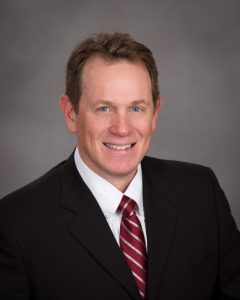
Washington Forest Protection Association Executive Director Jason Spadaro.
WFPA Executive Director Jason Spadaro lead a dialog with representatives from the Tulalip Tribe, Dairy Federation and Conservation Commission on how collaboration has helped all parties support salmon recovery efforts. The participants also discussed the importance of incorporating incentives for landowners and not just regulatory measures. And Commissioner of Public Lands Hilary Franz spoke of the need to reinvigorate the Timber/Fish/Wildlife Agreement (TFW) to ensure management of the state’s natural resources is mutually beneficial for the timber sector and tribal and conservation stakeholders.
Franz credited working forests for their commitment to TFW and pointed to the Road Maintenance and Abandonment Plan (RMAP) as an example on how the forestry sector has embraced efforts to preserve salmon habitat and are “doing the right thing.” Earlier this year, the Department of Natural Resources, Department of Ecology and Department of Fish & Wildlife recognized more than a dozen large private forest landowners – many of whom are WFPA members – for completing their RMAP ahead of the October 2022 deadline.
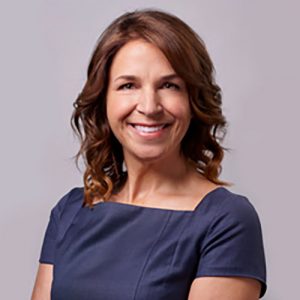
Commissioner of Public Lands Hilary Franz.
Said Franz:
“I want to say thank you. I have seen an unbelievable amount of energy and commitment to TFW – to the original principles, the original vision and values that were set forth by Billy Frank and Stu Bledsoe. I don’t think there’s any part where I haven’t seen you guys show up, and show up with not just the intent to help yourself but with an intent to truly help Washington state to help our tribes, to help our communities and do it with a sense of purpose, a sense of collaboration and a sense of leaning in.”
